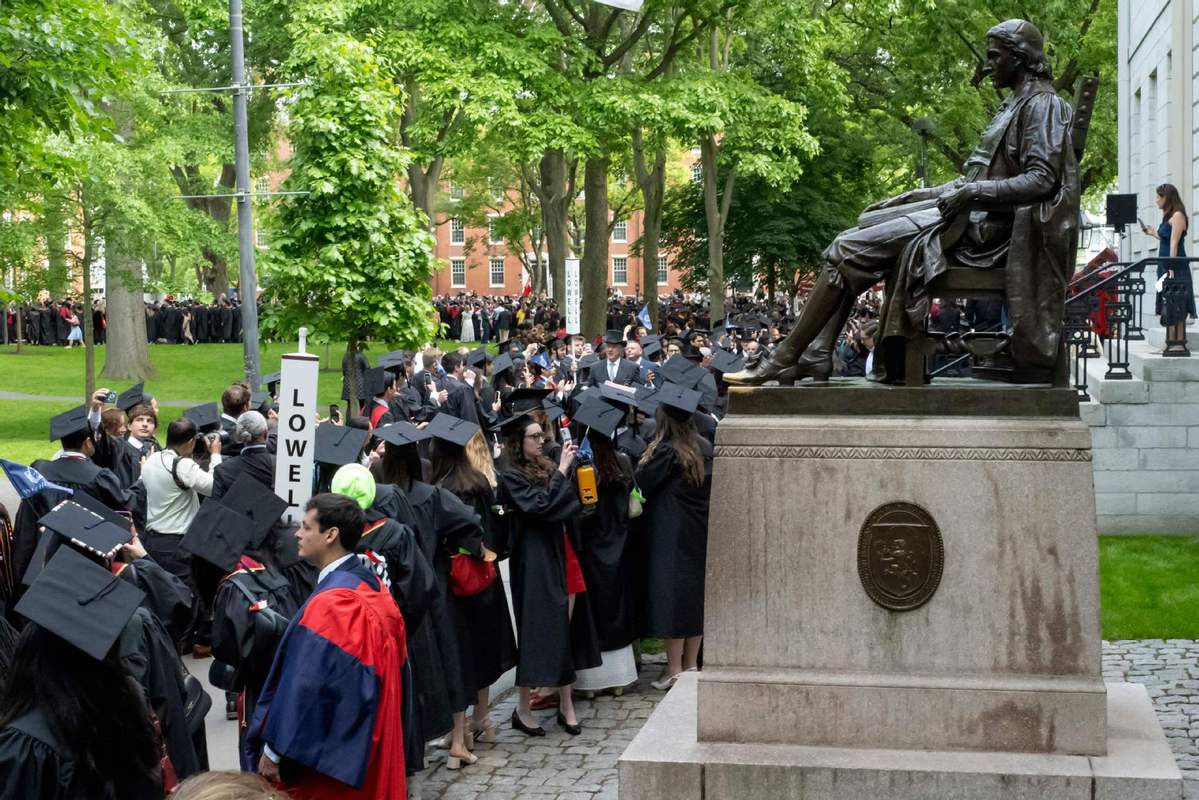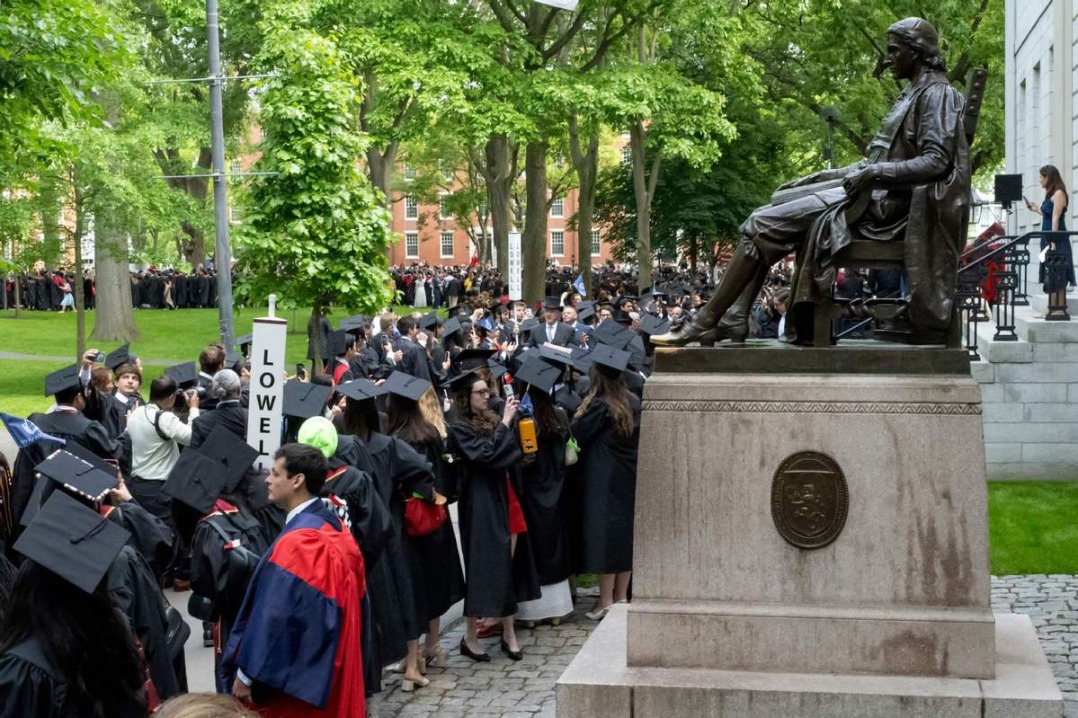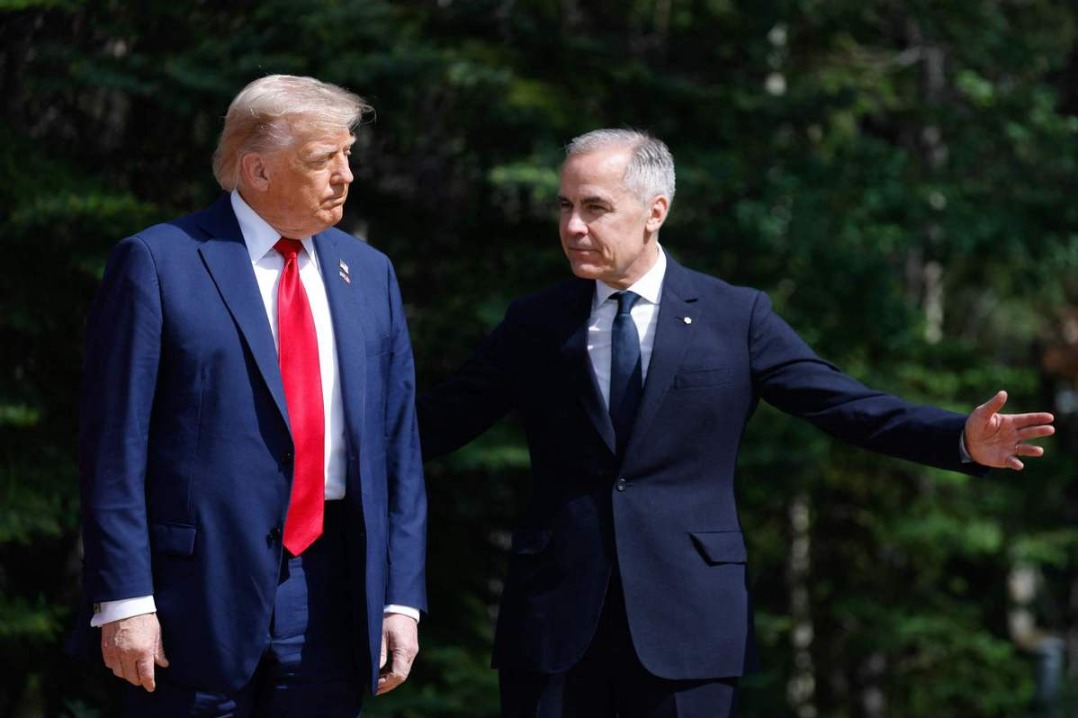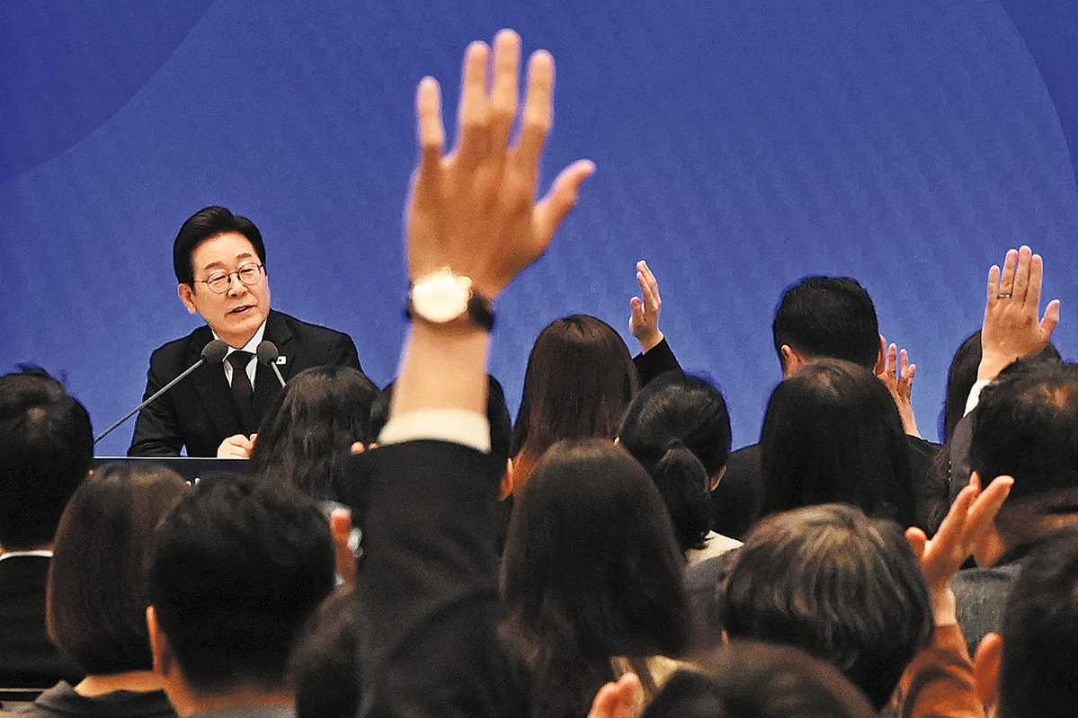Concerns expressed over US-China education ties
Insiders call for restoring talent flows amid growing trend of 'desinicization'


A growing trend of "desinicization" in US higher education — seen in efforts to limit the presence and influence of Chinese individuals in academia — has raised concerns over the future of China-US educational exchanges. As tensions persist, experts are calling for restoring talent flows to safeguard this vital channel of cooperation.
In May, the US temporarily suspended student visa interviews and announced that social media scrutiny would be ramped up worldwide, and said it would "aggressively revoke" visas of Chinese nationals, particularly those studying in what was described as "critical fields".
The US authorities' abrupt decision has led to panic and confusion in the global education market. "What does 'critical' mean? How will social media be scrutinized? We're deeply worried about this," said You Wenbin, head of Shanghai-based GuideIn, a consultancy focused on international education.
With over 15 years in international education consulting, You has seen firsthand how exchanges between China and the US have become increasingly politicized.
In 2018, the US launched the "China Initiative" to combat so-called economic espionage. Further restrictions came in 2020 with Proclamation 10043, barring students from Chinese universities allegedly tied to the military.
In January, the University of Michigan ended its partnership with Shanghai Jiao Tong University over "national security" concerns. Georgia Tech and UC Berkeley have also shut down the institutes in Shenzhen that they had jointly set up with Chinese universities.
Michael German, a former FBI agent and now a senior fellow at the Brennan Center for Justice, wrote in an analysis on the center's website, "The China Initiative was an unmitigated failure that caused lasting harm to US national interests ... The chilling effect it created within the US scientific community continues to threaten American primacy in science and technology."
According to a 2024 Stanford study, the number of Chinese-born scientists leaving the US since the "China Initiative" began increased by 75 percent, with most returning to China.
"The greatest impact is on graduate and doctoral-level education. When selecting students, advisers may be inclined to avoid the political risks associated with choosing Chinese students, due to the instability of visa policies," You said.
'Golden ages'
When You began his career, it was during what he described as the "golden ages" to study in the US. "Academic exchanges and international students once represented one of the most successful aspects of China-US relations," he said.
In 2010, the number of Chinese students in the US reached 127,628. That year, Chinese students surpassed Indian students as the largest international student group in the US, reported Xinhua News Agency.
The academic exchanges benefit not only Chinese students, but also US development. According to US government data, Chinese students contributed approximately $14.3 billion to the US economy in 2023.
In cutting-edge fields such as artificial intelligence, Chinese talent has played a particularly significant role.
Wu Xinbo, director of the Center for American Studies at Fudan University, said: "For a long time, Chinese and US students broadened their perspectives by discussing culture, freedom and research — learning not only about each other's countries but also reflecting on their own."
Recent shifts in US higher education and student visa policies, viewed by some as stemming from a sense of insecurity, partially reflect changes in the global balance of power between the two nations, he said.
While changes in the two countries' national strengths play a role, Chinese students studying in the US continue to bring benefits to both nations. Wu said the US is unlikely to completely shut the door on Chinese students.
"We will provide to China what was agreed to, including Chinese students using our colleges and universities (which has always been good with me!)," read the June 11 post by US President Donald Trump on his social media platform, Truth Social.
The US State Department said on June 18 that it is restarting the suspended process for foreigners applying for student visas, but all applicants will be required to unlock their social media accounts for government review.
Wu stated that a fundamental principle in managing US-China relations is to concentrate on developing China's own economy and technology, while further unleashing the power of the market and innovation.
"We hope both sides can approach this more rationally," he said. "As trade tensions mount, maintaining educational ties is more essential — without them, a breakdown in communication could escalate into a broader conflict."
houchenchen@chinadaily.com.cn

































